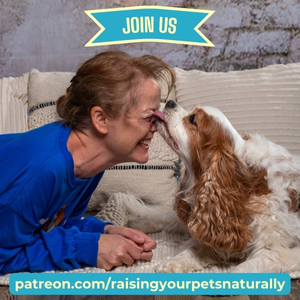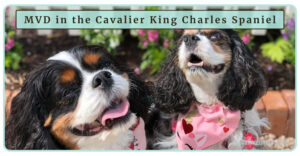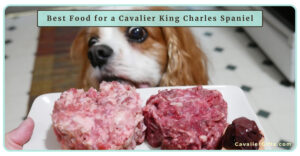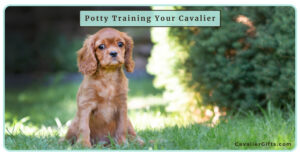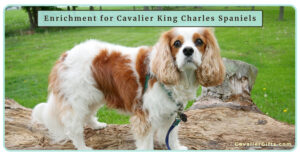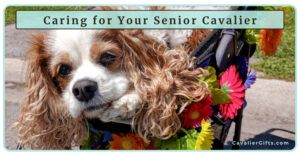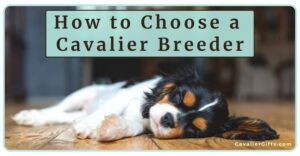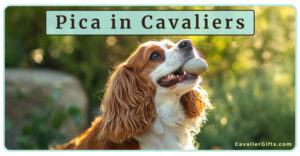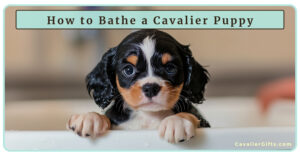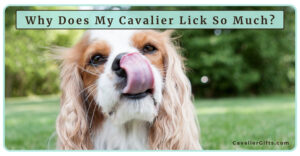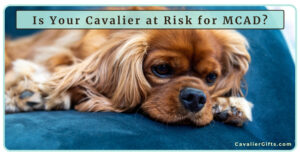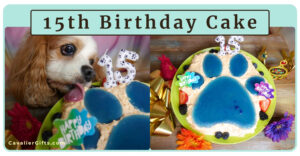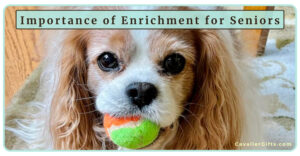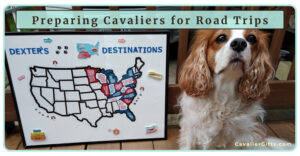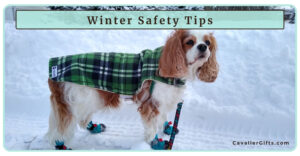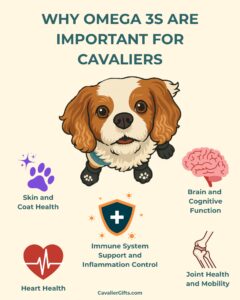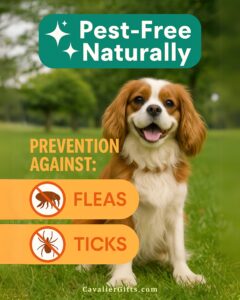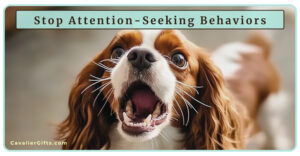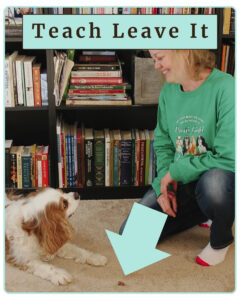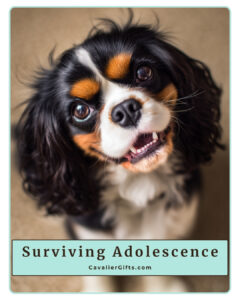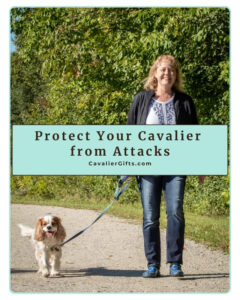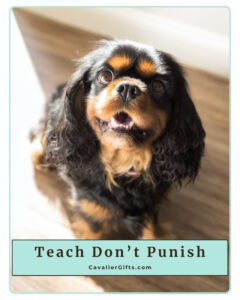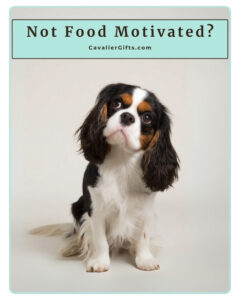The Importance of Enrichment for Senior Cavalier King Charles Spaniels
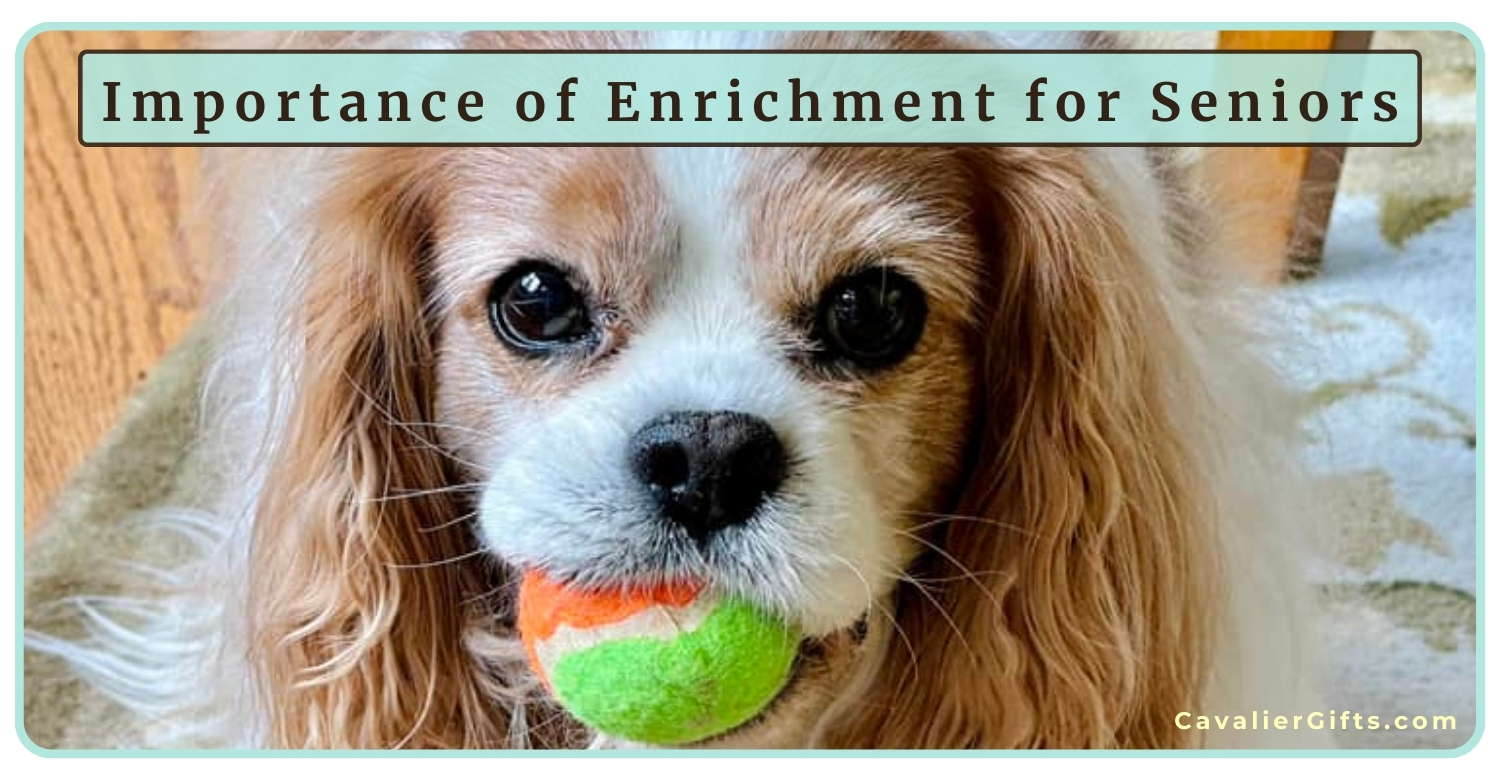

Oh, Dexter. My senior Cavalier King Charles Spaniel, will be fifteen on October 6, 2024! I’m over the moon happy that he has led a long, happy life. He was diagnosed with Chiari malformation and syringomyelia in 2012, and I didn’t think he would have a very long life. Eventually, his MVD diagnosis also rolled in. But, despite his medical conditions, he has been thriving. He’s not just alive, he’s kicking!
I’m not going to lie. He started showing his age and some cognitive decline a few years ago. I have written about his life on my first blog, Raising Your Pets Naturally, so make sure you head over there for even more about Dexter’s life and care. But today, I wanted to discuss some of the things I have done to help keep Dexter as sharp as possible and try to keep canine cognitive dysfunction syndrome (CCDS) at bay. Through my experiences and research, I’ve seen how diet, positive training, and environmental enrichment can make a significant difference in maintaining his quality of life. So, let’s jump in.

What is Canine Cognitive Dysfunction Syndrome
Canine cognitive dysfunction syndrome (CCDS), is similar to dementia in humans and affects many senior dogs. Symptoms can be different from dog to dog, but some common behaviors include: disorientation, disrupted sleep patterns, decreased activity levels, and changed interactions with their environment and people. Research, including a study from the Journal of Veterinary Behavior (2016), shows that cognitive decline in dogs can significantly impact their quality of life. But early intervention and supportive care can improve CCDS symptoms and a dog’s quality of life.
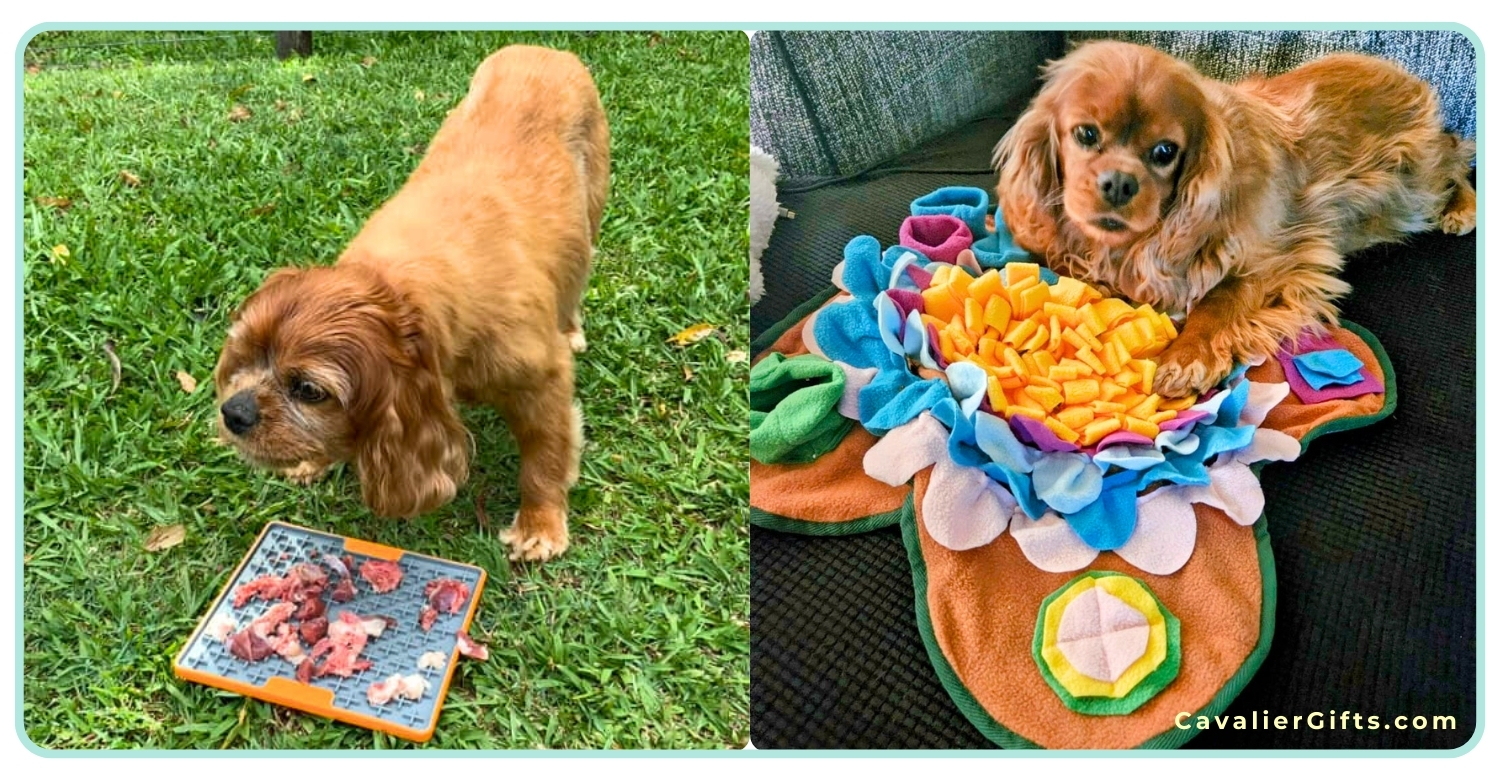
The Importance of Canine Enrichment for Senior Cavaliers
Environmental enrichment is important for helping senior Cavaliers with canine cognitive dysfunction syndrome. Canine enrichment is about engaging your Cavalier’s senses, engaging their minds, and keeping them moving. I always think about “living life to the fullest.” I mean, we brought our Cavaliers into our homes so we can enjoy them and do fun things with them. Although they are beautiful, they deserve more than just a life where they lie around all day and do nothing. Just because they are seniors, doesn’t mean this mentality should change, although their activities will need to be adjusted to meet their individual needs. And it’s not just me; there’s research that backs up this theory.
- Mental Stimulation: According to a study published in the Journal of Veterinary Internal Medicine (2016), mental stimulation through enrichment activities helps slow cognitive decline in senior dogs. Puzzle toys, interactive games, and scent-based activities keep the brain engaged, potentially delaying the progression of CCDS symptoms.
- Reduces Stress: Canine enrichment is a great way to help reduce anxiety and stress in senior Cavaliers dealing with cognitive decline. Engaging activities and sensory stimulation can make a big difference. By adding enrichment routines to their day, you’re helping your dog feel calmer and more secure, which can ease some of the stress and anxiety that often come with cognitive issues.
- Behavioral Improvement: Enrichment activities can make a big difference for senior Cavalier King Charles Spaniels who are restless or pacing. By offering mental and physical stimulation, these activities help reduce repetitive behaviors and keep your dog more relaxed.
- Enhanced Quality of Life: Enrichment isn’t just about keeping your Cavalier busy. It’s about improving their overall quality of life. Engaging in enjoyable and stimulating activities brings more enjoyment, engagement, and a sense of purpose to their days, making their lives more fulfilling.
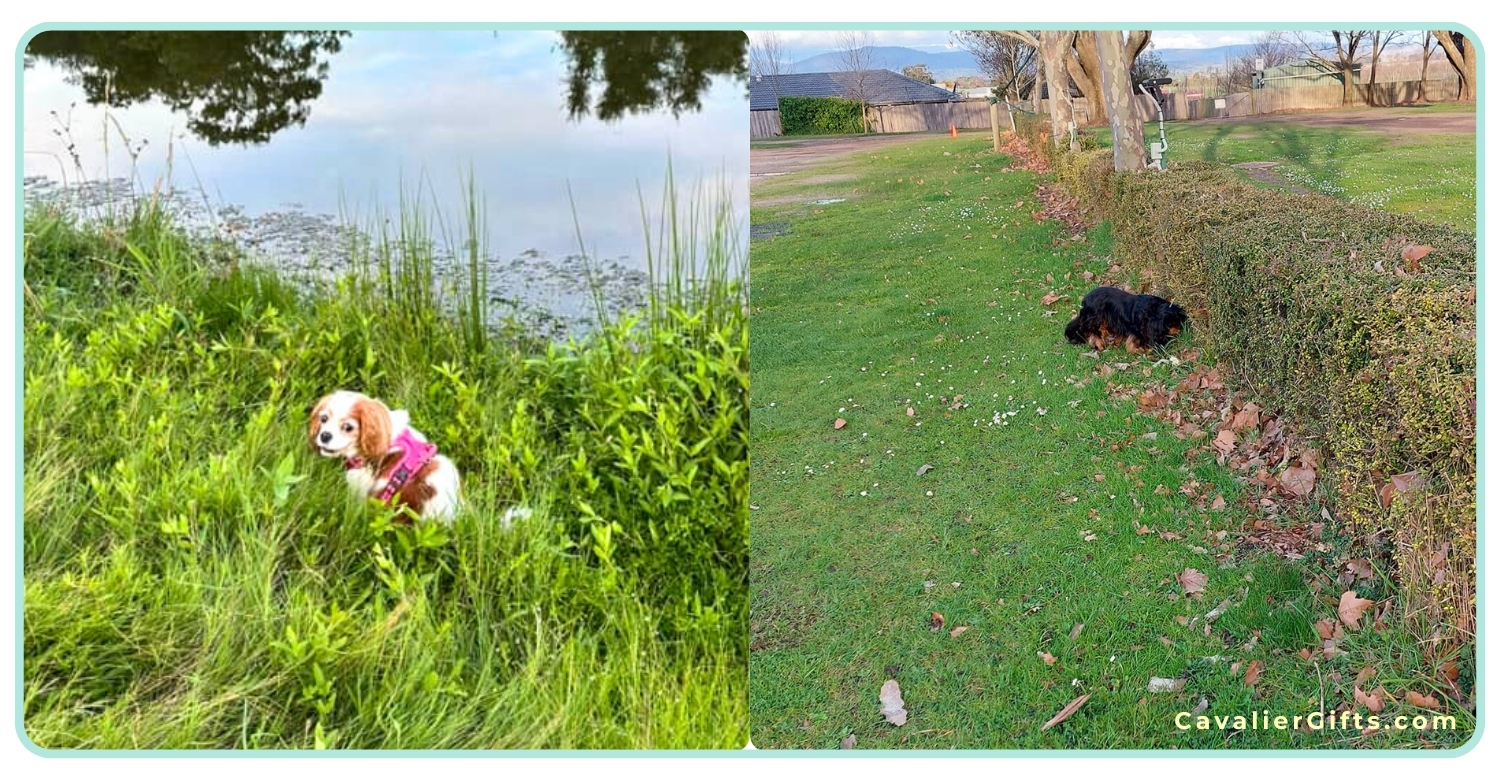
Simple Enrichment Ideas to Boost Your Senior Dog’s Quality of Life
Enrichment doesn’t have to be complicated or time-consuming. It’s all about finding simple, enjoyable activities that stimulate your senior Cavalier’s mind and body. Here are some ideas to get you started. And don’t forget to check out our article on Cavalier Enrichment Ideas.
- Interactive Toys: Toys that dispense treats or require problem-solving are fantastic for mental stimulation. Depending on your Cavalier, you can use treat-dispensing toys or lick mats. When Dexter was younger, treat dispensing toys and frozen Tux toys were a hit. Now, he enjoys lick mats and snuffle mats. Food toys engage your dog’s sense of smell and taste.
- Scent Games: Speaking of scent games, Dexter has always loved using his nose. Try hiding treats around the house or yard and let your Cavalier find them using his nose. Scent games are a natural way to keep your Cavalier active and provide both mental and physical exercise in a way most dogs love.
- Positive Dog Training Sessions: Short, positive dog training sessions with simple cues or tricks are highly rewarding. They keep your Cavalier’s brain sharp and help build a stronger bond through shared activities.
- Varied Walks or Strolls: Don’t get into a rut of going on the same walk, to the same park, on the same trail. Changing up your walking routes introduces new sights and smells. This variety provides your Cavalier with cognitive stimulation and keeps your walks fresh and interesting.
- Comfortable Environment: Make sure your senior Cavalier’s living space is safe and cozy. Look out for any obstacles, and ensure good footing below. Whether you have carpet, carpet runners, grippy socks, ToeGrips or all of the above, traction is incredibly important for senior Cavaliers. They don’t have the same core strength to hold themselves up, and slick floors can be very scary and even cause injury if they slip or splay out.
- Canine Fitness and Strength Building: I highly recommend setting up some sessions with a canine rehabilitation professional. Working with Dr. Sam, Dexter’s strength has been so important in his overall health and wellness. And our at home exercises aren’t just a way to keep him fit. They are also another form of enrichment, since he loves doing them! Engage in simple at-home exercises like sit-to-stand and sit-to-down exercises to help maintain your Cavalier’s muscle strength and joint mobility. Gentle range-of-motion exercises can also support your senior dog’s overall physical health and comfort.
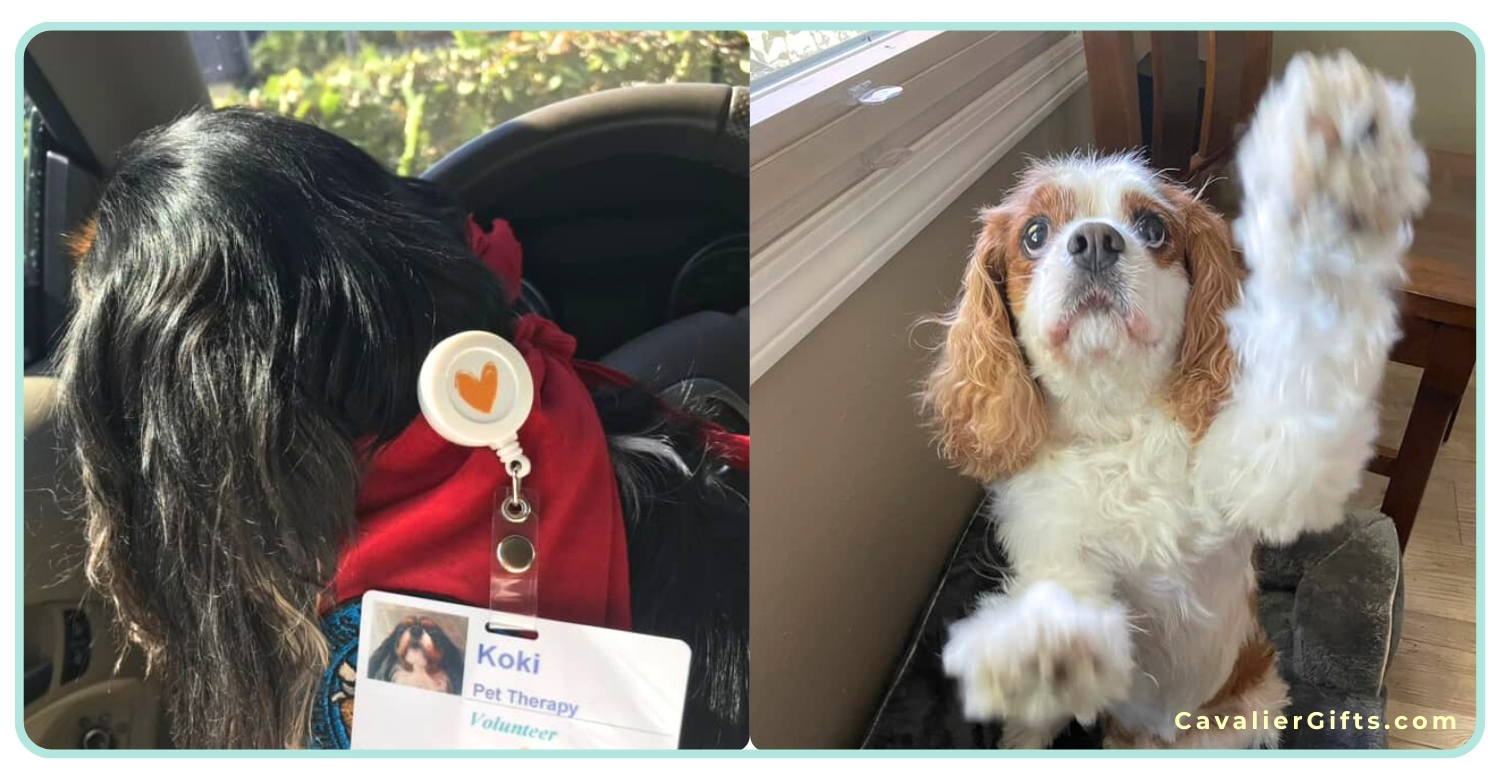
Supporting Cognitive Health with Diet and Nutrition
Diet plays a crucial role in managing cognitive decline in senior dogs. According to research published in the Journal of Veterinary Internal Medicine (2019), a diet rich in specific vitamins and nutrients can significantly support cognitive health. Key vitamins such as vitamin E and vitamin C act as antioxidants, protecting brain cells from oxidative stress and easing cognitive issues. B vitamins, including B6, B12, and folic acid, are essential for maintaining healthy brain function. Omega-3 fatty acids, commonly found in fish and fish oil supplements, also play a vital role in improving cognitive function and managing symptoms of cognitive decline. Including these vitamins and nutrients in your dog’s diet, either through high-quality dog food (preferably fresh) or supplements, can help manage cognitive decline and enhance their overall quality of life.
Dexter, is proof of the benefits of a fresh diet. His meals are carefully prepared with high-quality, fresh ingredients and free from unnecessary chemicals. I’m convinced this fresh, balanced diet, rich in essential nutrients, has played a significant role in keeping his mind sharp and supporting his overall well-being.
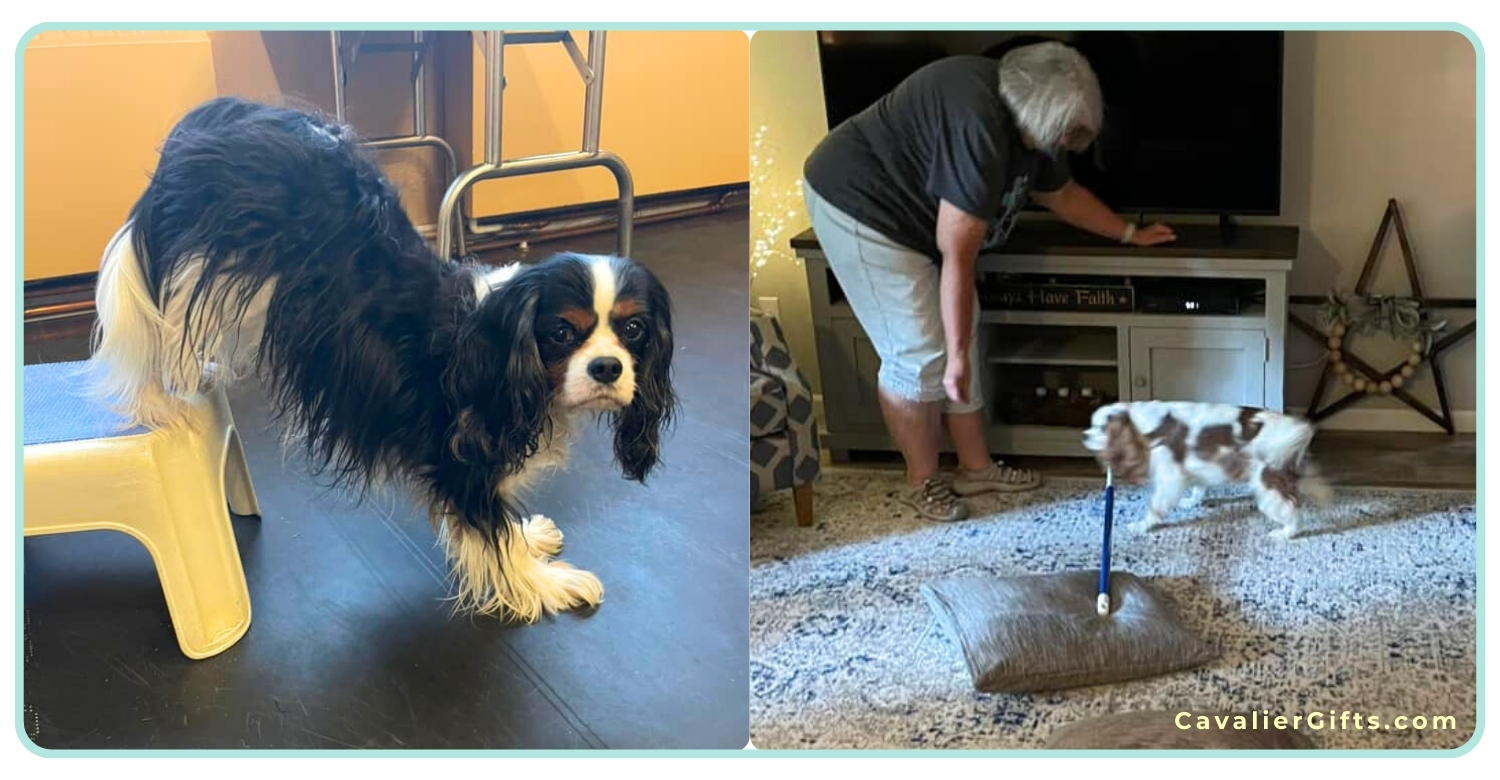
How Positive Training Supports Cognitive Health in Senior Cavaliers
Positive training and routine play a vital role in supporting a senior dog’s mental sharpness and managing the effects of cognitive decline. As a positive dog trainer, I’ve taught Dexter plenty of fun and useful tricks, not just for good behavior, but also to keep his mind engaged and sharp. Each training session isn’t just about obedience; it’s about giving Dexter the mental stimulation he needs to stay mentally fit as he ages.
Incorporating regular training sessions into your dog’s routine is a great way to improve their cognition and their body. Focus on simple tricks and behaviors that challenge their mind and body without causing stress. I have noticed Dexter’s abilities change over the years, so it is important to change with them. By tailoring positive dog training sessions to your Cavalier’s needs and incorporating enjoyable activities into their day, you can help your Cavalier maintain their mental clarity and overall well-being.
Follow our YouTube channel for more Cavalier enrichment ideas!
Final Thoughts
Incorporating canine enrichment into Dexter’s daily routine has been essential for maintaining his quality of life. It’s not just about keeping him busy; it’s about enhancing his mental, emotional, and physical well-being. Enrichment is just one piece of the puzzle for Dexter’s health. A fresh, balanced diet and consistent, positive training are also vital for supporting his well-being as a senior dog.
Dexter’s vibrant health is a testament to how a combination of mental stimulation, nutritious food, and engaging routines can make a real difference. I encourage all Cavalier families to integrate these practices into their senior dogs’ lives. By focusing on enrichment, diet, and training, you can significantly improve your dog’s overall well-being and help them enjoy their golden years to the fullest.
I host a private Facebook group for Cavalier King Charles Spaniels, and we have a big focus on canine enrichment ideas and challenges to keep your Cavalier engaged and thriving!
How do you incorporate enrichment, diet, or training into your senior dog’s routine? Share your tips and experiences below!

- Enrichment Increases Relaxation
- https://www.ncbi.nlm.nih.gov/pmc/articles/PMC8772568/
- https://www.sciencedirect.com/science/article/pii/S0168159123002691
Join our vibrant Cavalier King Charles Spaniel community on Facebook, support our dedication to pet wellness on Patreon, and stay updated with our weekly newsletter for invaluable tips and insights into raising happy, healthy pets. Together, let’s make a difference in our dogs’ lives!
|
|

|
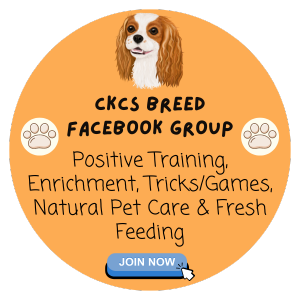
|
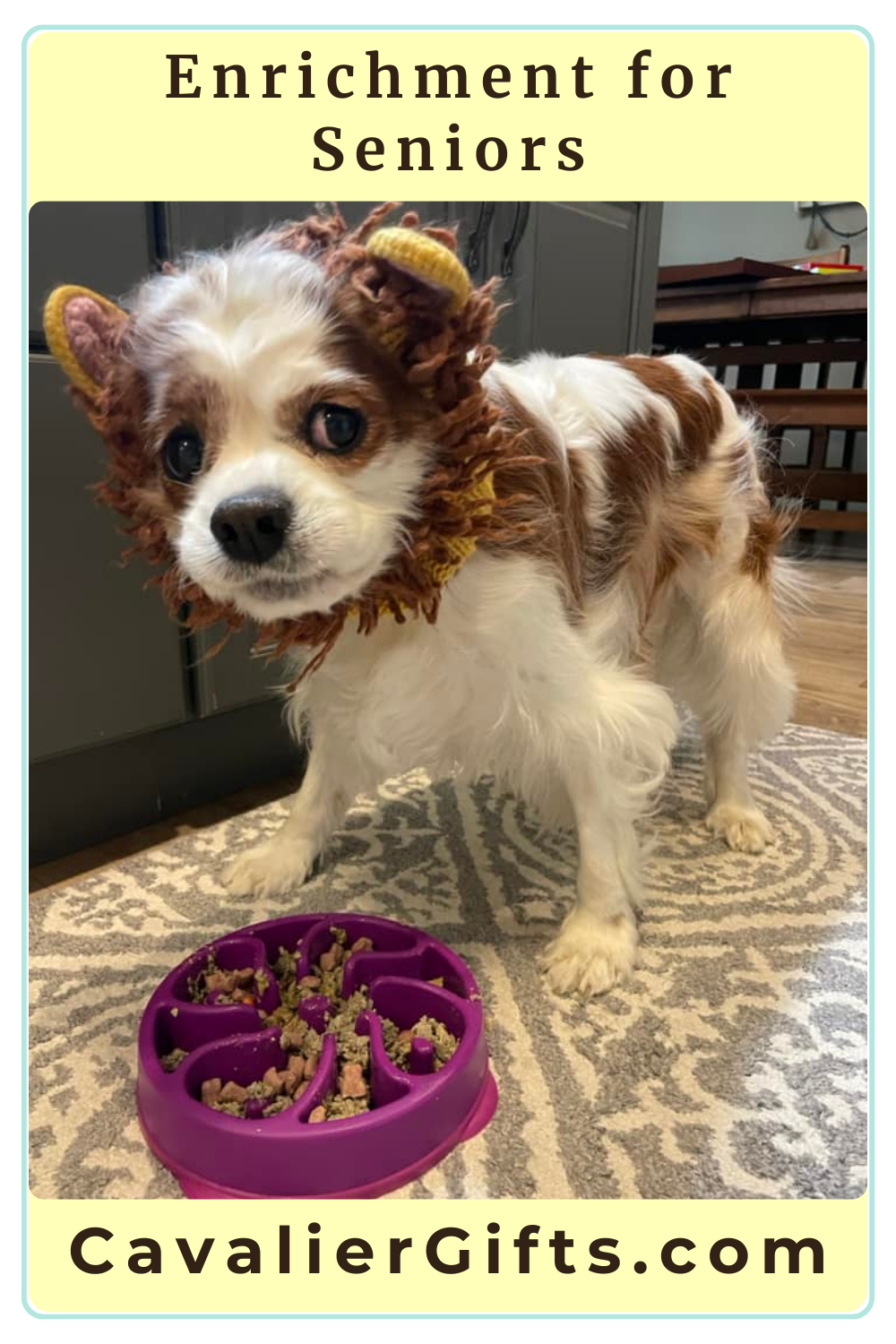
Google Ad Below
